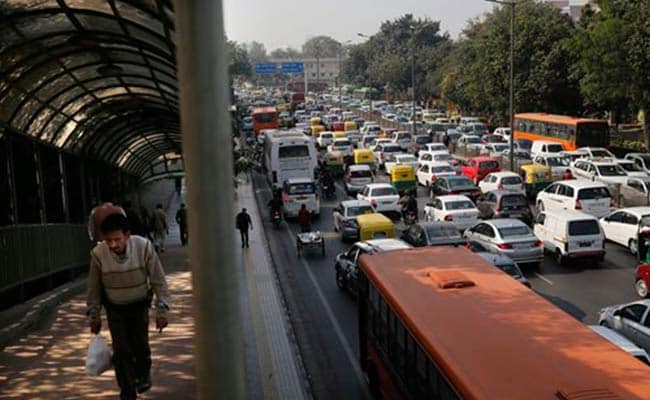
A new odd-even rule for cars in Delhi was tested today in a two-hour trial run. The 15-day road rationing will be enforced from Friday to clean up the world's most polluted capital.
Here are 10 developments in the story:
For the first 15 days of the New Year, odd-numbered cars will be allowed on odd dates and even-numbered cars on even dates, barring Sunday, when all cars will be allowed.
Some 200 points across the city were part of the exercise to test the coordination between various agencies. Many volunteers failed to show up.
Some 40 officers meant to be part of the odd-even drive are on mass leave to protest action against their colleagues allegedly for not signing off on decisions taken by the Aam Aadmi Party (AAP) government.
Those who violate the odd-even rule will be fined Rs 2,000. Exceptions have been made for medical emergencies, women, VIPs, CNG cars and two-wheelers. In response to a petition, the High Court has asked the government why women and two-wheelers are exempt.
Among those exempt is the Chief Justice of India, TS Thakur, who, however, says he will follow the rule. The US embassy has also said it will go by the rule.
Chief Minister Arvind Kejriwal says the move to ban private cars on alternate days will drastically reduce air pollution in Delhi, which is more than 10 times the World Health Organization's safe limits.
Some critics warn the measures will be unenforceable in a city where traffic rules are routinely flouted. Many believe residents could try to skirt the ban by forging number plates or buying second cars.
But even critics say the rule should be given a chance. "Odd-Even scheme should be given a fair chance, despite design and implementation flaws. We owe it to ourselves and future generations," tweeted Yogendra Yadav, who was expelled by AAP earlier this year for indiscipline.
To cope with the extra pressure on the public transport network, Delhi's government has hired around 3,000 private buses. Schools have been ordered to remain closed till January 15 so that their buses can also be pressed into service.
Around 8.5 million vehicles fill Delhi's roads and 1,400 new cars are being added every day. That has contributed to Delhi being the most polluted of 1,600 cities around the world that were surveyed by the WHO last year.

